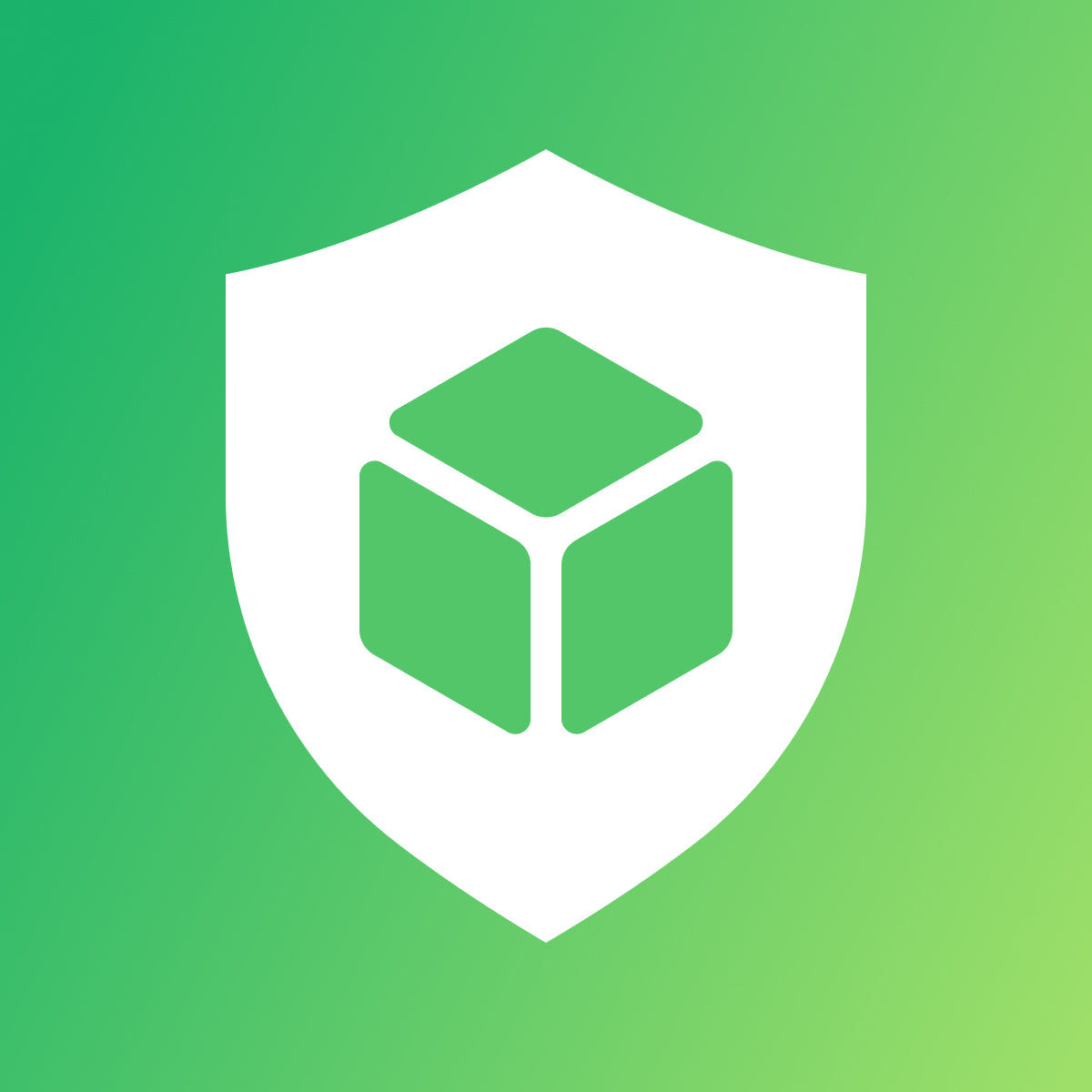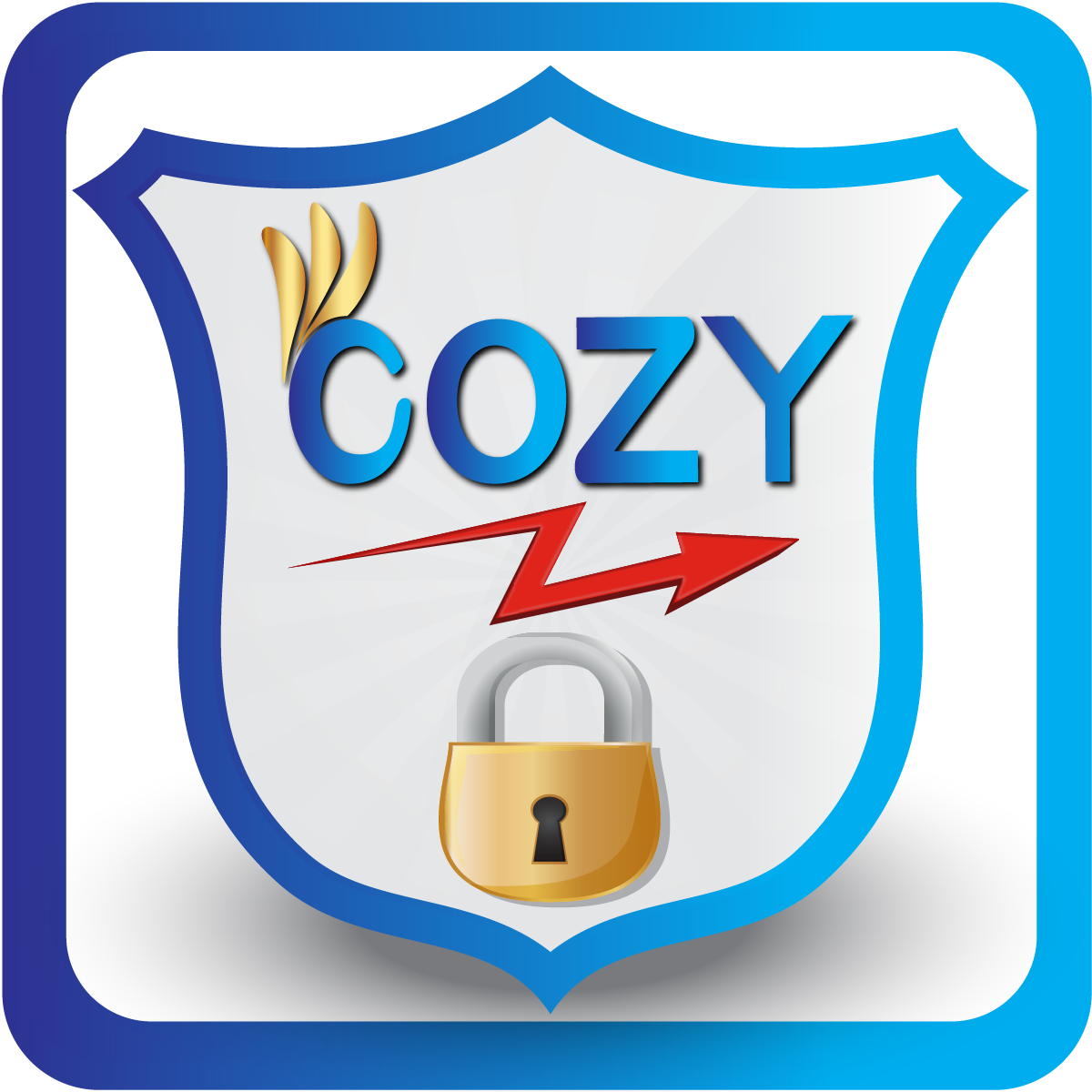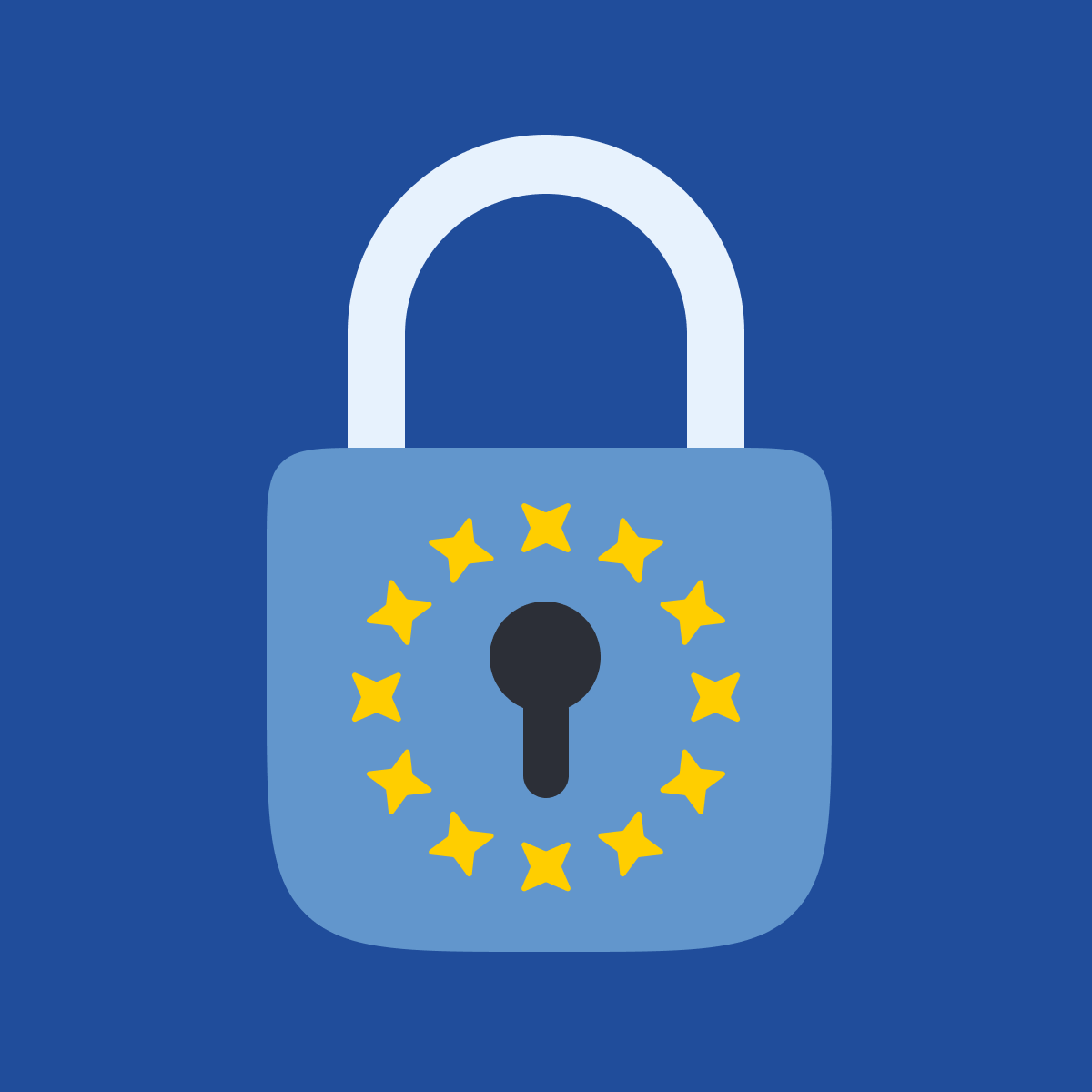- Home
- Privacy security
Best Privacy and Security Apps
What is Privacy and Security software?
Appjunction currently boasts 21 tools within the Privacy and Security category as of April 2025. Among these, some standout options renowned for their robust features and excellent value for money includes includes Captain Insure ,
Route , and Nofraud . These software solutions offer comprehensive functionalities tailored to meet various Privacy and Security needs, making them top choices for businesses seeking efficient and effective marketing solutions.
When we talk about keeping our personal stuff safe online, we're really talking about two big helpers: privacy and security software. Think of these as the digital locks and alarms for your computer, phone, and all those internet connections.
Privacy software focuses on preserving individuals' privacy by implementing measures like encryption, anonymization, and data access restrictions. It helps users control who can access their personal information and how it's used, reducing the risk of identity theft, online tracking, and surveillance.
On the other hand, security software encompasses a broader range of protective measures against cyber threats, including viruses, malware, phishing, and hacking attempts. It includes antivirus programs, firewalls, intrusion detection systems, and virtual private networks (VPNs), among others. These tools constantly monitor and analyze digital activities to detect and mitigate potential security breaches, ensuring the safety and integrity of sensitive data.
Together, privacy and security software provide users with essential defenses against evolving digital threats, empowering them to navigate the online world with confidence and peace of mind.
10 Listings in Privacy and Security Available

Captain Insure
0
(165)
Captain Shipping Protection provides a revenue-boosting shipping protection service to reduce the risk of damage, loss, and theft, securing your deliveries and customer satisfaction.

Route
0
(402)
Route improves the customer experience, reduces costs, and increases revenue with package protection, tracking, and more, offering a comprehensive post-purchase solution.

Nofraud
0
(168)
Nofraud utilizes real-time fraud screening and detection to increase order approval rates and eliminate chargebacks, enhancing transaction security and instilling confidence in customers while mitigating financial risks for businesses.

Signifyd
0
(159)
Signifyd offers guaranteed protection against fraud and non-fraud chargebacks, maximizing conversions and ensuring a secure payment environment for businesses and customers alike, thereby fostering trust and confidence in online transactions.

Cozy AntiTheft
0
(937)
Cozy AntiTheft safeguards store content, images, and text from unauthorized use by implementing protection measures with minimal effort, helping businesses protect their intellectual property and maintain control over their digital assets.

MenuLock
0
(168)
MenuLock prevents content theft by disabling right-click functions such as "Save As," copy, and paste, ensuring the security of website content on both desktop and mobile platforms without causing user annoyance.

NA Age Verification
0
(127)
NA Age Verification enables businesses to implement age verification measures on their websites, ensuring compliance with age restrictions and regulations by prompting users to verify their age through a popup upon entry or before checkout.

Onlyage
0
(107)
Onlyage is an age verification app designed to identify users who are below the specified age limit and prevent them from accessing restricted content or making purchases, helping businesses comply with age-related regulations and protect underage users.

GeoPro
0
(60)
GeoPro redirects customers based on geolocation, allowing businesses to customize their marketing strategies, block or redirect users from specific countries, and tailor regionalized content to enhance user experience and maximize conversions.

Pandectes
0
(1,550)
Pandectes simplifies GDPR compliance for online shops by streamlining compliance processes, earning user trust by demonstrating commitment to data privacy, and minimizing legal risks associated with data protection regulations.
Overall Rating
4.9Ratings Breakdown
5
(152)
4
(6)
3
(2)
2
(2)
1
(3)
User Reviews
Shop For Your Charity
July 3, 2024
This app was a bit glitchy at first, but Omnisend's team was great about getting things fixed for me. So far, so good - I'm going to keep using it and see what they come up with next. My main feedback would be they really need to step up their email template game! They call themselves the marketing automation tool for omnichannel retailers, and retail is al
Summer Indigo
July 3, 2024
I am beyond furious! I painstakingly added all my contacts to this app a few years ago when I first connected it to my Shopify store. It was a ton of work! I haven't used it much since then because my business was mostly in-person, but I could still log in and poke around just recently. Imagine my shock when I tried to log in yesterday to set up a campaign,
2020shopdirect.com
July 3, 2024
Okay, so I really like this app! It's great. But, there's something that's been bugging me. It's a big deal, at least for us. It's about how you subscribe and unsubscribe people. We always use double opt-in, which you totally should, but the problem is you can't really customize the emails and landing pages. You can change the words, but that's it. No logo,
RunSociety
July 3, 2024
It's a breeze to use, but I wish the WYSIWYG editor had some cooler features and more customization options. It feels a bit limited.
unisonmen.de
July 3, 2024
Please provide me with the review text you want me to rephrase. I need the actual content of the review to help you! 😊
TopCPAPCleaner
July 3, 2024
This app was great, but it's gotten so pricey I might have to jump ship. My wallet can't keep up! Thinking about switching to something cheaper.
JacnoBijoux
June 2, 2024
Bon, j'ai essayé d'envoyer un mail test après avoir tout configuré en français. Le mail est arrivé dans les spams, et en plus, il était à moitié en anglais ! C'est vraiment dommage parce que l'appli est super facile à utiliser.
Retro Chip
June 2, 2024
It would be awesome if the app could pull in user names when sending emails. Also, can you add the ability to choose between different email addresses? I have several for my business. Thanks a bunch!
Akiba Fragrance & Wellness Studio
June 2, 2024
New to Omnisend, but gotta say, their customer support is really on point! Big shoutout to Baraath for being super helpful and quick to answer my questions about formatting and testing an email campaign.
esrajeans
June 2, 2024
Man, der Support von Omnisend geht mir so auf die Nerven! Ewig lange Wartezeiten, bis endlich mal jemand antwortet, und dann kommt da so ein Wischi-Waschi zurück, mit dem ich echt nichts anfangen kann. Bei den Preisen, die Omnisend aufruft, könnte man echt mehr erwarten. Total unzufrieden - kann ich im Moment echt nicht weiterempfehlen!
Similar Categories
More about Privacy and Security Tools
Benefits of using Privacy and Security Software
Privacy and security apps offer numerous benefits for ecommerce or Shopify brands, ensuring the protection of both customer data and the business itself. Firstly, these apps enhance customer trust by safeguarding sensitive information such as payment details and personal data. By assuring customers of their privacy and security, brands can encourage more transactions and foster long-term relationships.
Moreover, privacy and security apps help ecommerce brands comply with regulations such as GDPR and CCPA, reducing the risk of costly legal penalties and reputational damage due to non-compliance. These apps also mitigate the threat of cyberattacks, including data breaches and fraud, which can lead to financial losses and tarnish the brand's reputation.
Additionally, implementing robust privacy and security measures can differentiate a brand from competitors, demonstrating a commitment to customer protection and ethical business practices. This can attract discerning consumers who prioritize privacy and security when choosing where to shop online.
Overall, integrating privacy and security apps into ecommerce platforms like Shopify can bolster trust, compliance, and competitiveness, ultimately contributing to the brand's success in the digital marketplace.
To better understand the benefits of using Privacy and Security Apps, you may also read the general reviews provided by users of these platforms on Appjunction. Additionally, you can join communities and interact with peers using these tools. Furthermore, you may review the case studies provided by the aforementioned tools.
Typical Pricing of Privacy and Security Apps
The cost of privacy and security tools for Shopify or ecommerce brands can vary depending on factors such as the specific features offered, the scale of the business, and the provider's pricing model. Generally, pricing can range from a few dollars per month for basic plans to hundreds or even thousands of dollars for more comprehensive solutions.
Basic privacy and security tools may include features like SSL certificates for website encryption, which can cost anywhere from $10 to $100 per year. More advanced tools, such as malware scanners, firewall protection, and intrusion detection systems, typically come with monthly or annual subscription fees ranging from $20 to $200 or more, depending on the level of protection and the size of the business.
Some providers offer tiered pricing plans based on the number of users, website traffic, or additional features required. Additionally, there may be one-time setup fees or customization costs for tailored solutions.
Overall, the cost of Privacy and Security tools would vary depending on your usage and the size of your brand. However, there are a lot of tools you may find on Appjunction that offer free trials to give you an idea of the features they offer. I'd highly suggest trying a few and selecting the ones that work for you. You can also sort them by pricing and use them according to your needs.
Privacy and Security Software Features to look
When selecting a privacy and security platform for an ecommerce brand, it's crucial to consider several key features to ensure comprehensive protection and compliance. Here are some essential features to look for:
Encryption: The platform should offer robust encryption capabilities to safeguard sensitive data, including customer information, payment details, and communications. Look for encryption protocols such as SSL/TLS to secure data in transit and at rest.
Data Loss Prevention (DLP): DLP features help prevent accidental or intentional data breaches by monitoring, detecting, and blocking the transmission of sensitive information outside authorized channels. This includes features like content inspection, file tracking, and policy enforcement.
Malware Protection: The platform should include robust malware detection and prevention capabilities to safeguard against viruses, ransomware, and other malicious software. This may involve antivirus scanning, behavioral analysis, and real-time threat intelligence.
Firewall Protection: A firewall is essential for filtering network traffic and blocking unauthorized access to your ecommerce infrastructure. Look for features like application-layer filtering, intrusion detection/prevention, and customizable rule sets.
Security Monitoring and Incident Response: The platform should provide continuous monitoring of security events and alerts, enabling proactive threat detection and rapid incident response. Look for features like log management, SIEM (Security Information and Event Management), and automated incident workflows.
Compliance Management: Ensure the platform supports regulatory compliance requirements relevant to your ecommerce operations, such as GDPR, CCPA, PCI DSS, and HIPAA. Look for features like compliance reporting, audit trails, and data governance tools.
User Authentication and Identity Management: Strong authentication mechanisms, such as multi-factor authentication (MFA) and single sign-on (SSO), help prevent unauthorized access to sensitive systems and data. Additionally, robust identity management features facilitate user provisioning, deprovisioning, and access control.
To get a better overview of the various features offered by different tools, I would highly recommend browsing the feature section of each app and comparing them with others in the same industry. This will give you a better idea of the different features offered by apps in Privacy and Security.
Who uses Privacy and Security Software?
Various stakeholders within an ecommerce brand utilize privacy and security software to protect sensitive information, ensure regulatory compliance, and maintain trust with customers. Here are the primary users:
IT and Security Teams: They're the ones picking out the best software to keep data safe. They're like the goalkeepers, making sure no unwanted visitors get through with things like encryption and firewalls.
Website Administrators: Think of them as the defenders on the field, making sure the website itself is locked down tight with things like SSL encryption, which is like a fancy digital padlock for your data.
Compliance Officers: Legal eagles, or compliance officers, are up next. They're the rule keepers, making sure everything the brand does is by the book, especially with all those tricky privacy laws like GDPR or HIPAA.
Customer Support Teams: Customer support representatives may utilize privacy and security software to assist customers with security-related inquiries, such as account security, data access requests, and privacy preferences. They play a role in maintaining customer trust and addressing concerns related to privacy and security.
Executive Leadership: The big bosses, or the executive leadership, set the game plan. They decide where to put the money and resources to keep everything running smoothly and safely.
End Users (Customers): While not directly involved in managing privacy and security software, end users (customers) benefit from its implementation. They rely on ecommerce brands to protect their personal and financial information, maintain confidentiality, and ensure secure transactions.
Privacy and Security software has been used by various teams across the organization. I would highly recommend you to go through reviews along with the designation of the reviewer to get a fair idea of the different teams that use these software. You can also dig deeper into each review and find out the use cases and problems they have faced.
Different kinds of Privacy and Security Software
For an ecommerce or direct-to-consumer (DTC) brand, several types of privacy and security software are essential for protecting sensitive data, securing transactions, and ensuring regulatory compliance. Here are some key categories:
Encryption Software: Think of it like a secret code that keeps customer data safe. It scrambles the info so only someone with the right key can read it. This is super important for keeping data safe when it's being sent over the internet or sitting on your servers.
Firewall Solutions: These are like bouncers for your network, keeping the bad guys out. They check out the traffic coming in and out and make sure nothing fishy gets through. You've got ones that look after your whole network and others that just protect each device.
Antivirus and Antimalware Software: Antivirus and antimalware software detect and remove malicious software, such as viruses, worms, Trojans, and ransomware, from devices used by employees and customers. These tools help prevent data breaches, system infections, and financial losses.
Intrusion Detection and Prevention Systems (IDPS): IDPS solutions monitor network and system activities for signs of malicious behavior or policy violations. They can detect and respond to threats in real-time, helping to prevent unauthorized access, data exfiltration, and other security incidents.
Security Information and Event Management (SIEM): SIEM software aggregates and analyzes security event data from various sources, such as logs, sensors, and security appliances. It provides insights into security threats and compliance issues, enabling proactive threat detection, incident response, and compliance reporting.
Data Loss Prevention (DLP) Tools: Data loss prevention tools are your secret agents. They watch for any sensitive info trying to leave your network without permission and block it. They're all about making sure your secrets don't get spilled.
Identity and Access Management (IAM): IAM solutions manage user identities and access rights to ensure that only authorized individuals can access systems and data. This includes features like single sign-on (SSO), multi-factor authentication (MFA), and user provisioning/deprovisioning.
Privacy Compliance Software: Privacy compliance software helps ecommerce brands comply with regulations such as GDPR, CCPA, and PCI DSS by providing tools for data governance, consent management, data subject access requests (DSARs), and privacy impact assessments (PIAs).
I would highly recommend that you go through the subcategories within each category on Appjunction to learn more about the different types of tools offered in Privacy and Security. Select a subcategory for which you're searching for a tool and explore its features and pricing. You can also filter the reviews based on company size and industry to see how this tool works for businesses like yours.
Potential issues with Privacy and Security Software
While privacy and security apps offer valuable protection for ecommerce and Shopify brands, they may also present potential issues that businesses need to address. Some of these issues include:
Compatibility Challenges: Privacy and security apps may not always be compatible with existing ecommerce platforms or other third-party applications. Integration issues could arise, leading to functionality gaps or conflicts that compromise security.
Performance Impact: You've also got to watch out for how these apps affect your website's speed. If your store starts to drag, customers might bounce before they buy anything. And you don't want that.
False Positives: Then there's the headache of false alarms. Imagine your security app is like an overeager guard dog that barks at everything. It could end up blocking cool customers by mistake, and that could mean lost sales. You've got to keep an eye on those alerts and tweak the settings just right.
Complexity of Implementation: Implementing and configuring privacy and security apps can be complex, especially for businesses without dedicated IT resources. Without proper expertise, misconfiguration or incomplete setup could leave vulnerabilities in the system.
User Experience Impact: Security measures such as CAPTCHA challenges, multi-factor authentication, or stringent password requirements can add friction to the user experience, potentially leading to abandoned carts or reduced conversions.
Maintenance and Updates: Privacy and security apps require regular maintenance and updates to address new threats and vulnerabilities. Failure to keep the software up to date could leave the ecommerce brand exposed to emerging risks.
Regulatory Compliance Risks: While privacy and security apps aim to enhance compliance with regulations such as GDPR or CCPA, improper implementation or inadequate safeguards could result in non-compliance and potential legal consequences.
Overreliance on Technology: Relying solely on privacy and security apps without addressing human factors, such as employee training and awareness, could create a false sense of security. Effective security measures should encompass both technology and human aspects.
Getting onboarded with a new Privacy and Security tool is a significant decision that you, as a manager, have to make. Do check out detailed reviews and, most importantly, their pros and cons because they'll give you a fair idea of potential challenges that you may face with these tools. I would also suggest that you filter out the negative reviews along with your industry to get a better idea of the whole picture.
Integration of Privacy and Security Software
Ecommerce-focused privacy and security software often integrate with a variety of complementary tools and platforms to provide comprehensive protection and functionality. Here are some common types of tools that may integrate with privacy and security software for ecommerce:
Ecommerce Platforms: Think about the place where you set up your online shop, like Shopify or WooCommerce. These safety programs can hook right up to them, making sure all the customer details and transactions are safe and sound.
Customer Relationship Management (CRM) Systems: Integration with CRM systems like Salesforce, HubSpot, or Zoho CRM allows ecommerce brands to manage customer data securely, track interactions, and ensure compliance with privacy regulations.
Email Marketing Platforms: Integration with email marketing platforms such as Mailchimp, Klaviyo, Constant Contact, or Campaign Monitor enables secure collection and management of email subscriber data, as well as compliance with email marketing regulations like GDPR and CAN-SPAM.
Analytics and Reporting Tools: Integration with analytics and reporting tools like Google Analytics, Adobe Analytics, or Mixpanel provides insights into website traffic, user behavior, and security-related metrics, helping ecommerce brands monitor and improve security posture.
Customer Support Software: When customers reach out for help, you're probably using a help desk like Zendesk. These programs make sure you're taking care of their questions without risking their private info.
Content Management Systems (CMS): For those who manage their website's content with WordPress or another CMS, these programs help protect your site from hackers and nasty software.
Inventory Management Systems: IIf you've got a system to keep track of all your products and orders, like TradeGecko, these programs make sure all that sensitive data is handled safely.
Shipping and Fulfillment Platforms:And when it's time to ship things out, they work with platforms like ShipStation to make sure all the shipping details are processed without a hitch.
Fraud Prevention Services: Lastly, they team up with services that are on the lookout for any fishy orders, so you can stop scammers in their tracks while still making shopping easy for the good guys.
Appjunction can help you with a detailed list of tools integrated with each tool or app. Go to the app page, and you'll be able to find out those in detail. Additionally, you may compare different tools with respect to integrations offered by tools and what's suitable for your ecommerce brand.
Trends in Privacy and Security Software
Several trends are shaping the landscape of privacy and security tools in ecommerce:
Increased Focus on Data Privacy Regulations: With the proliferation of data privacy regulations such as GDPR, CCPA, and others, ecommerce businesses are prioritizing compliance and investing in tools that help them manage and protect customer data in accordance with regulatory requirements.
Rise of AI and Machine Learning in Security: Security's getting smarter with AI and machine learning. These brainy technologies are helping to spot the bad guys faster, deal with problems without a fuss, and sift through tons of info to catch any sneaky cyber tricks or scams.
Shift to Cloud-Based Security Solutions: More and more, online shops are choosing security that lives in the cloud. It's like having a security guard that can grow and change as needed, keeps an eye on things around the clock, and doesn't make the store's own computer systems sweat.
Focus on Zero Trust Architecture: There's this new thing called Zero Trust—it's all about trust no one, ask questions first. Even if you're inside the network, you've got to prove you're okay to be there. It's all about tight security checks and watching everything closely to keep the data under lock and key.
Emphasis on Endpoint Security: With folks shopping from their couch or on the go, keeping all those devices safe is a big deal. Security tools are getting better at protecting everything from laptops to phones to all those smart gadgets we've got these days.
Integration of Privacy by Design Principles: Privacy isn't just an afterthought—it's part of the blueprint. When building their systems and processes, online stores are thinking about how to keep our privacy in the mix from the get-go.
Blockchain for Secure Transactions: Blockchain might sound like a fancy block party, but it's actually a techy way to make transactions super secure and clear as glass. It's like having a record that can't be messed with, and it helps keep everything honest and smooth, from paying for your stuff to tracking your package.
Focus on Customer Trust and Transparency: Ecommerce brands are recognizing the importance of building and maintaining customer trust through transparent privacy policies, clear data usage consent mechanisms, and proactive communication about security measures. Tools that facilitate transparency and empower customers to control their data are gaining prominence.
Threat Intelligence Sharing and Collaboration: Online stores are teaming up, swapping notes on threats, and working with the pros to make sure they're one step ahead of any cyber nasties.
Frequently Asked Questions Related To Privacy and Security
What are the main types of Privacy and Security apps for e-commerce?
Key categories include Encryption Software for data protection, Firewall Solutions for network security, Antivirus and Antimalware Software for threat removal, Intrusion Detection and Prevention Systems (IDPS) for real-time threat response, Security Information and Event Management (SIEM) for security event analysis, Data Loss Prevention (DLP) Tools for preventing data leaks, Identity and Access Management (IAM) for controlling access, and Privacy Compliance Software for regulatory adherence.
How much do Privacy and Security apps typically cost for an online store?
Costs can range from a few dollars monthly for basic plans to hundreds or even thousands for comprehensive solutions. Factors influencing price include features, business scale, and provider pricing models. Basic tools like SSL certificates may cost $10-$100 per year, while advanced tools like malware scanners or firewalls typically involve monthly or annual subscriptions ranging from $20-$200 or more.
What are the potential challenges of using Privacy and Security apps in e-commerce?
Challenges may include compatibility issues with existing platforms, potential performance impact on website speed, false positives that block legitimate customers, complexity of implementation and configuration, user experience friction due to security measures, ongoing maintenance and update requirements, regulatory compliance risks if not properly implemented, and the risk of overreliance on technology without addressing human factors like employee training.
Who within an e-commerce company typically uses Privacy and Security apps?
Various stakeholders utilize these apps, including IT and Security Teams for overall data protection, Website Administrators for website security, Compliance Officers for regulatory adherence, Customer Support Teams for handling security inquiries, Executive Leadership for strategic decision-making, and End Users (Customers) who benefit from the implemented security measures.
What are the current trends in Privacy and Security tools for e-commerce?
Trends include a growing focus on data privacy regulations like GDPR and CCPA, the rise of AI and machine learning in security for faster threat detection and response, a shift towards cloud-based security solutions for scalability and flexibility, adoption of Zero Trust Architecture for stricter access controls, emphasis on endpoint security for protecting various devices, integration of Privacy by Design principles, utilization of blockchain for secure transactions, a focus on customer trust and transparency, and increased threat intelligence sharing and collaboration within the industry.
What features should I look for in a Privacy and Security platform for my online store?
Essential features include Encryption for data protection, Data Loss Prevention (DLP) to prevent data breaches, Malware Protection against malicious software, Firewall Protection for network security, Security Monitoring and Incident Response capabilities, Compliance Management tools, User Authentication and Identity Management features for access control, and integration options with other relevant e-commerce tools and platforms.